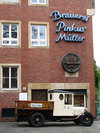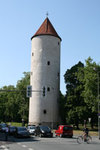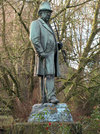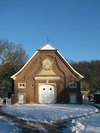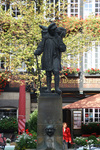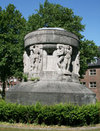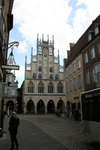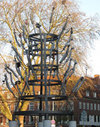Franz Friedrich Wilhelm Freiherr von Fuerstenberg
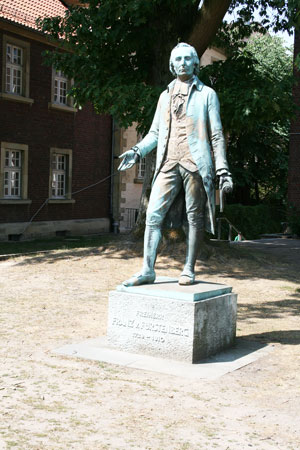
Fürstenberg stems from a Westphalian noble family. From 1746 to 1748, he studied at the Jesuit School in Cologne, from 1750 to 1751 at the University Salzburg and from 1751 to 1753 in Rome. He became 1748 canon in Münster and Paderborn in 1748 already. The Münster cathedral chapter consisted then traditionally of the sons of the Westphalian nobility. In 1762 he was appointed minister for the prince-bishopric Münster and 1770 to the vicar-general by the elector of Cologne and bishop of Münster, Maximilian Friedrich von Königsegg-Rothenfels.
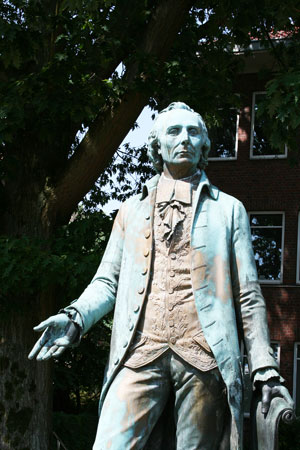
Especially the government of the ailing and the indebted Münster land was delegated to Fürstenberg and he was finally able to overcome the consequences of the Seven Year War in the Münsterland. Fürstenberg reconstructed the budget, promoted agriculture and trade, improved the administration of justice, regulated the police and urged the clergy to further education. He enforced the taxation of the clergy against a storm of outrage. In addition, the sincerity of religious life should be a criterion to enter a monastery instead of wealth. Furthermore, Fürstenberg improved the military through a kind of Landwehr, armed population and by founding a military academy. He passed a medicinal system for the Münsterland, which was seen as one of the most modern in Germany. In 1780 Fürstenberg was dismissed from his ministerial post as he campaigned for the introduction of a standing army and was faced with forceful resistance. But the baron stayed vicar general until 1807 and still had the supervision of the school system. His reforms were supported by his friend Bernhard Heinrich Overberg.
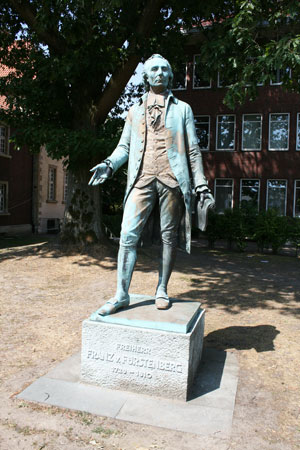
In the centre of the Fürstenberg reforms was the school system. The vicar-general published a revolutionary 'school order' for the grammar school, in 1776, which thoroughly changed the school curriculum in favour of mathematics and science. In 1777, the general compulsory education was intensified in the prince-bishopric Münster. Together with Bernhard Heinrich Overberg he worked on a reorganisation of the elementary schools in the 1780ties. On his initiative a school experiment at the Gymnasium Paulinum started in 1780: High German became school subject. He initiated a reform for the grammar school, founded the University Münster as well as a priest's seminar. In 1807, he finally resigned from his office as vicar-general. Franz Freiherr von Fürstenberg was also a distinguished shorthand writer. For his personal diary records he used the French language, from 1761 onwards the English shorthand system by Aulay Macaulay and undertook inside this system also his own creative changes.
In Münster, Fürstenberg belonged to the catholic Münster circle (familia sacra) around the Princess Amalie von Gallitzin, with whom he was connected in a close friendship. His letters to the Proincess are an important literary evidence of the century. Fürstenberg cared intensively for clerics, fleeing from Flanders and Brabant, together with Amalie von Gallitzin after the French Revolution in1789, during the revolution's wars and the Napoleonic wars, who were stranded in Münster. Fürstenberg was buried on the Überwasser cemetery in Münster; since the 21st of October 1929, his grave is on the Domherren cemetery of the St.-Paulus-Cathedral of Münster.

 Deutsch
Deutsch Nederlands
Nederlands Dansk
Dansk Österreichisch
Österreichisch Po Polsku
Po Polsku









